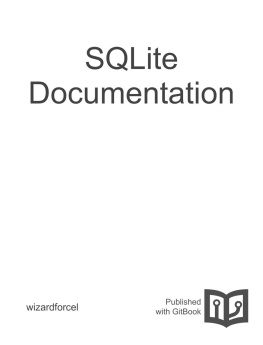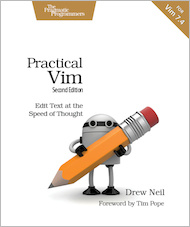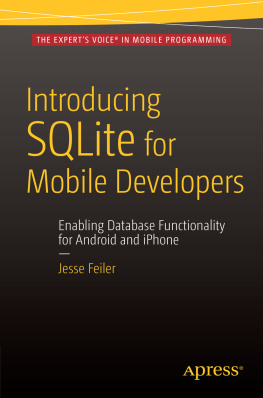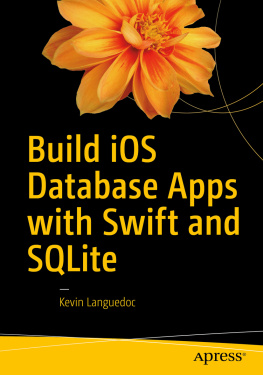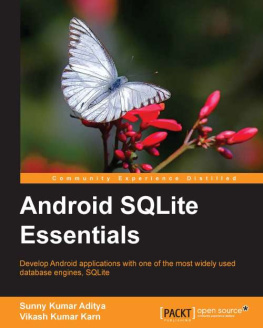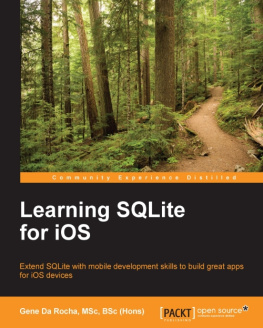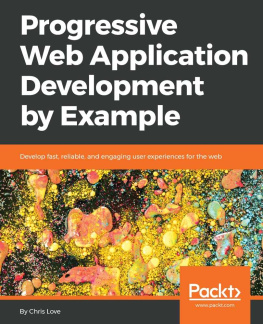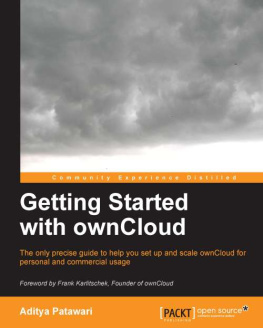Jay A. Kreibich - Using SQLite : [Small. Fast. Reliable. Choose any three]
Here you can read online Jay A. Kreibich - Using SQLite : [Small. Fast. Reliable. Choose any three] full text of the book (entire story) in english for free. Download pdf and epub, get meaning, cover and reviews about this ebook. City: Beijing, year: 2010, publisher: OReilly, genre: Computer. Description of the work, (preface) as well as reviews are available. Best literature library LitArk.com created for fans of good reading and offers a wide selection of genres:
Romance novel
Science fiction
Adventure
Detective
Science
History
Home and family
Prose
Art
Politics
Computer
Non-fiction
Religion
Business
Children
Humor
Choose a favorite category and find really read worthwhile books. Enjoy immersion in the world of imagination, feel the emotions of the characters or learn something new for yourself, make an fascinating discovery.
- Book:Using SQLite : [Small. Fast. Reliable. Choose any three]
- Author:
- Publisher:OReilly
- Genre:
- Year:2010
- City:Beijing
- Rating:5 / 5
- Favourites:Add to favourites
- Your mark:
- 100
- 1
- 2
- 3
- 4
- 5
Using SQLite : [Small. Fast. Reliable. Choose any three]: summary, description and annotation
We offer to read an annotation, description, summary or preface (depends on what the author of the book "Using SQLite : [Small. Fast. Reliable. Choose any three]" wrote himself). If you haven't found the necessary information about the book — write in the comments, we will try to find it.
Using SQLite : [Small. Fast. Reliable. Choose any three] — read online for free the complete book (whole text) full work
Below is the text of the book, divided by pages. System saving the place of the last page read, allows you to conveniently read the book "Using SQLite : [Small. Fast. Reliable. Choose any three]" online for free, without having to search again every time where you left off. Put a bookmark, and you can go to the page where you finished reading at any time.
Font size:
Interval:
Bookmark:

Beijing Cambridge Farnham Kln Sebastopol Tokyo
To my Great-Uncle Albert Unken Al Kreibich.
19181994
He took a young boy whose favorite question was why? and taught him to ask the question how?
(Who alsomuch to the dismay of his parents and the kitchen telephonetaught him the joy of answering that question, especially if it involved pliers or screwdrivers.)
jk
for more information on this offer!
Please note that upgrade offers are not available from sample content.
Supplemental files and examples for this book can be found at http://examples.oreilly.com/9780596521196/. Please use a standard desktop web browser to access these files, as they may not be accessible from all ereader devices.
All code files or examples referenced in the book will be available online. For physical books that ship with an accompanying disc, whenever possible, weve posted all CD/DVD content. Note that while we provide as much of the media content as we are able via free download, we are sometimes limited by licensing restrictions. Please direct any questions or concerns to .
This book provides an introduction to the SQLite database product. SQLite is a zero-configuration, standalone, relational database engine that is designed to be embedded directly into an application. Database instances are self-contained within a single file, allowing easy transport and simple setup.
Using SQLite is primarily written for experienced software developers that have never had a particular need to learn about relational databases. For one reason or another, you now find yourself with a large data management task, and are hoping a product like SQLite may provide the answer. To help you out, the various chapters cover the SQL language, the SQLite C programming API, and the basics of relational database design, giving you everything you need to successfully integrate SQLite into your applications and development work.
The book is divided into two major sections. The first part is a traditional set of chapters that are primarily designed to be read in order. The first two chapters provide an in-depth look at exactly what SQLite provides and how it can be used. The third chapter covers downloading and building the library. Chapters Four and Five provide an introduction to the SQL language, while Chapter Six covers database design concepts. Chapter Seven covers the basics of the C API. Chapter Eight builds on that to cover more advanced topics, such as storing times and dates, using SQLite from scripting languages, and utilizing some of the more advanced extensions. Chapters Nine and Ten cover writing your own custom SQL functions, extensions, and modules.
To complete the picture, the ten chapters are followed by several reference appendixes. These references cover all of the SQL commands, expressions, and built-in functions supported by SQLite, as well as documentation for the complete SQLite API.
The first edition of this book coves SQLite version 3.6.23.1. As this goes to press, work on SQLite version 3.7 is being finalized. SQLite 3.7 introduces a new transaction journal mode known as Write Ahead Logging, or WAL. In some environments, WAL can provide better concurrent transaction performance than the current rollback journal. This performance comes at a cost, however. WAL has more restrictive operational requirements and requires more advanced support from the operating system.
Once WAL has been fully tested and released, look for an article on the OReilly website that covers this new feature and how to get the most out of it.
The SQLite project maintains three mailing lists. If youre trying to learn more about SQLite, or have any questions that are not addressed in this book or in the project documentation, these are often a good place to start.
This list is limited to announcements of new releases, critical bug alerts, and other significant events in the SQLite community. Traffic is extremely low, and most messages are posted by the SQLite development team.
sqlite-users@sqlite.orgThis is the main support list for SQLite. It covers a broad range of topics, including SQL questions, programming questions, and questions about how the library works. This list is moderately busy.
sqlite-dev@sqlite.orgThis list is for people working on the internal code of the SQLite library itself. If you have questions about how to use the published SQLite API, those questions belong on the sqlite-users list. Traffic on this list is fairly low.
You can find instructions on how to join these mailing lists on the SQLite website. Visit http://www.sqlite.org/support.html for more details.
The sqlite-users@sqlite.org email list can be quite helpful, but it is a moderately busy list. If youre only a casual user and dont wish to receive that much email, you can also access and search list messages through a web archive. Links to several different archives are available on the SQLite support page.
The code examples found in this book are available for download from the OReilly website. You can find a link to the examples on the books catalog page at http://oreilly.com/catalog/9780596521196/. The files include both the SQL examples and the C examples found in later chapters.
Taking a book from an idea to a finished product involves a great many people. Although my name is on the cover, this could not have been possible without all of their help.
First, I would like to acknowledge the friendship and support of my primary editor, Mike Loukides. Thanks to some mutual friends, I first started doing technical reviews for Mike over eight years ago. Through the years, Mike gently encouraged me to take on my own project.
The first step on that path came nearly three years ago. I had downloaded a set of database exports from the Wikipedia project and was trying to devise a minimal database configuration that would (hopefully) cram nearly all the current data onto a small flash storage card. The end goal was to provide a local copy of the Wikipedia articles on an ebook reader I had. SQLite was a natural choice. At some point, frustrated with trying to understand the correct call sequence, I threw my hands up and exclaimed, Someone should write a book about this! Ding! The proverbial light bulb went off, and many, many (many) late nights later, here we are.
Behind Mike stands the whole staff of OReilly Media. Everyone I interacted with did their best to help me out, calm me down, and fix my problemssometimes all at once. The production staff understands how to make life easy for the author, so that we can focus on writing and leave the details to someone else.
I would like to thank D. Richard Hipp, the creator and lead maintainer of SQLite. In addition to coordinating the continued development of SQLite and providing us all with a high-quality software product, he was also gracious enough to answer numerous questions, as well as review a final draft of the manuscript. Some tricky spots went through several revisions, and he was always quick to review things and get back to me with additional comments.
A technical review was also done by Jon W. Marks. Jon is an old personal and professional friend with enterprise-class database experience. He has had the opportunity to mentor several experienced developers as they made their first journey into the relational database world. Jon provided very insightful feedback, and was able to pinpoint areas that are often difficult for beginners to grasp.
Font size:
Interval:
Bookmark:
Similar books «Using SQLite : [Small. Fast. Reliable. Choose any three]»
Look at similar books to Using SQLite : [Small. Fast. Reliable. Choose any three]. We have selected literature similar in name and meaning in the hope of providing readers with more options to find new, interesting, not yet read works.
Discussion, reviews of the book Using SQLite : [Small. Fast. Reliable. Choose any three] and just readers' own opinions. Leave your comments, write what you think about the work, its meaning or the main characters. Specify what exactly you liked and what you didn't like, and why you think so.

![Jay A. Kreibich Using SQLite : [Small. Fast. Reliable. Choose any three]](/uploads/posts/book/149624/thumbs/jay-a-kreibich-using-sqlite-small-fast.jpg)


